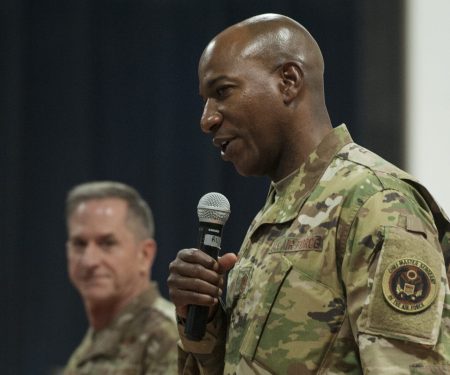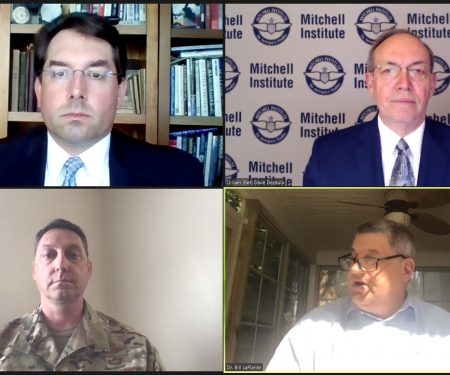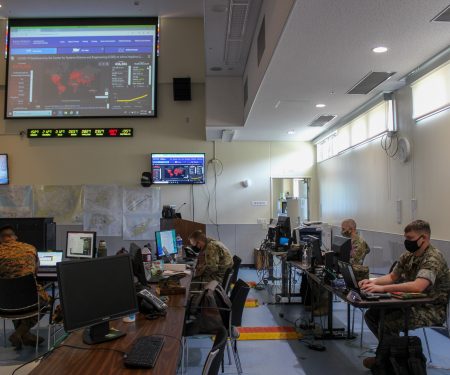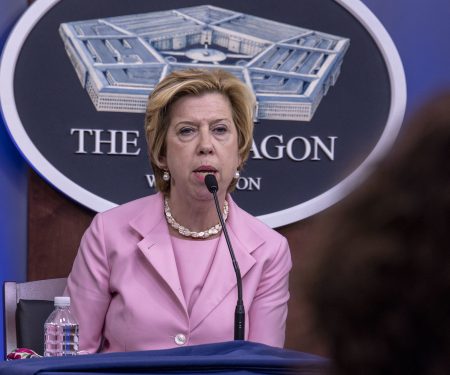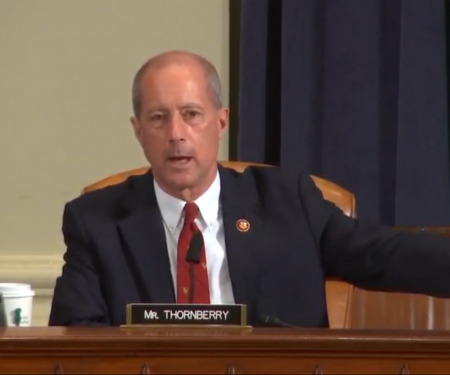Radar Sweep
Snapshot: DOD and COVID-19
Here's a look at how the Defense Department is being impacted by and responding to the COVID-19 pandemic.
Here’s Where the Air Force’s Pilot Shortfall Is the Worst
Despite the Air Force’s full-court press in recent years to close its persistent and troubling pilot shortfall, the gaps in crucial categories remain—and in some cases, have worsened. The Air Force closed out 2019 with roughly 1 in 10 bomber, fighter and special operations pilot billets vacant, according to statistics the service provided at Air Force Times’ request.
US General Skeptical that Bounties Led to Troops’ Deaths
The top U.S. general for the Middle East said Tuesday that the intelligence suggesting that Russia may have paid Taliban militants to kill American troops in Afghanistan was worrisome, but he is not convinced that any bounties resulted in U.S. military deaths.
Trump Heads to US Military’s Southern Command in Florida as Coronavirus Cases Surge
President Donald Trump will meet July 10 with leaders of the U.S. military’s Southern Command, the combatant command on the front lines of America’s effort to curb drug trafficking.
Space Force Proposes Headquarters Staff Led by Generals and Civilians
The U.S. Space Force Pentagon headquarters will have a leaner staff structure than traditional military service headquarters and some senior staff posts will be assigned to civilians, according to a draft proposal.
Thousands of Contracts Highlight Quiet Ties between Big Tech and US Military
On July 8, newly published research from the technology accountability nonprofit Tech Inquiry revealed that the Defense Department and federal law enforcement agencies including Immigration and Customs Enforcement, the Federal Bureau of Investigation, the Drug Enforcement Agency, and the Federal Bureau of Prisons, have secured thousands of deals with Google, Amazon, Microsoft, Dell, IBM, Hewlett Packard, and even Facebook that have not been previously reported. The report offers a new window into the relationship between tech companies and the U.S. government, as well as an important detail about why such contracts are often difficult to find.
Calspan Awarded DARPA Air Combat Evolution Contract
Calspan Corporation has been awarded a $14.1 million, four-year contract by the Defense Advanced Research Projects Agency to develop full-scale air combat experimentation infrastructure for its Air Combat Evolution program. The overall focus of the program is to develop and measure human trust in artificial intelligence. The technologies developed within the ACE program will ultimately enable future pilots to confidently offload some high workload tactical tasks like visual air-to-air engagements so they can better focus on managing the larger battlespace.
Military's Top Appeals Court to Consider Whether Retirees Can Be Court-Martialed
The case of a retired sailor who was court-martialed after leaving the Navy has reached the military's highest appeals court, potentially setting the stage for a U.S. Supreme Court battle on the matter.
Judge Awards $879 Million from Iran to Khobar Towers Bombing Victims, Families
U.S. District Court Chief Judge Beryl Howell ruled from Washington last week that the backers, planners and supporters of the bombing—Iran and its terrorist arm—should pay out $819,120,000 to 14 Airmen and 41 of their family members who suffered that day and have been suffering since.
National Museum USAF Adds New GPS, DSP Satellite Exhibit
New exhibits detailing the Air Force’s involvement in managing Global Positioning System (GPS) and using Defense Support Program satellites are now on display at the National Museum of the U.S. Air Force.
These Incredible Colorized Photos Capture Life on the Front Lines of WWII
Jakob Lagerweij's interest in coloring historical photos began back in 2018, when he started working on black and white photos from his hometown of Deventer. And so he began in earnest, creating Colourised Piece of Jake and found his muse in photos of war.
